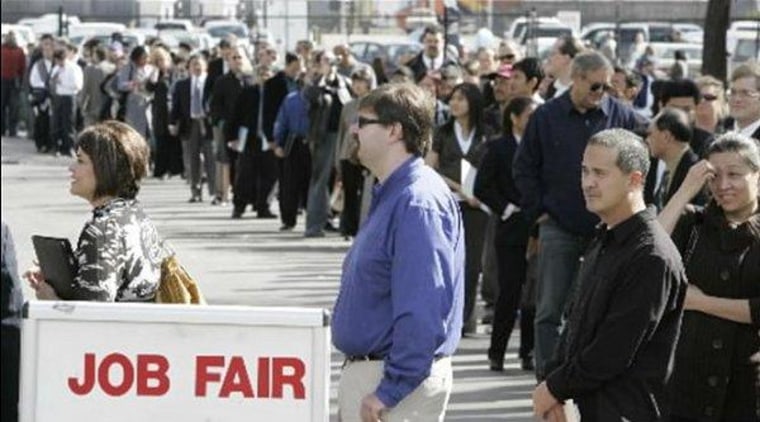When it comes to the ongoing fiscal talks in Washington, some high-profile policies -- Bush-era tax rates and the sequester -- tend to get the most attention. But as the end of the year approaches, these measures aren't the only important policies with looming deadlines.
As Jamelle Bouie explained this week, the unemployment insurance extension, which President Obama included in his 2010 deal with Congress, is also poised to end in January. Bouie added, "If it does, more than 2 million Americans will lose their federal jobless benefits, a key lifeline in an economy that's still trudging towards recovery."
It's hard to overstate the economic impact of the policy.
Fully extending the current level of jobless benefits provided by states and the federal government through next year would add the equivalent of 300,000 jobs by slightly boosting spending and growth in 2013, the nonpartisan Congressional Budget Office estimated in a report released Wednesday. [...]Extending the current slate of extended federal jobless benefits would cost roughly $30 billion and increase gross domestic product by 0.2% in the fourth quarter of 2013, according to estimates from CBO, the independent budget arm of Congress. Because the unemployment insurance program puts money in the pockets of people likely to spend it, the subsequent boost in demand for goods and services would likely create about 300,000 full-time jobs, according to the report.
The full CBO report is online here (pdf).
The right routinely opposes extended jobless aid, but it matters a great deal. Not only do the benefits help keep struggling families from slipping into poverty, but the assistance is inherently stimulative -- in terms of bang for the buck, unemployment aid is one of the best and most effective forms of government investments boosting the overall economy because those who receive the benefits don't stick it in a mutual fund; they put the money right back into the economy, buying goods and services.
If Democrats haven't included this in the fiscal talks, they're making a mistake.
